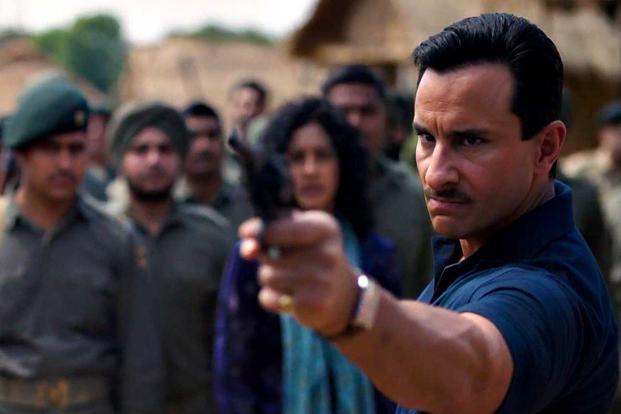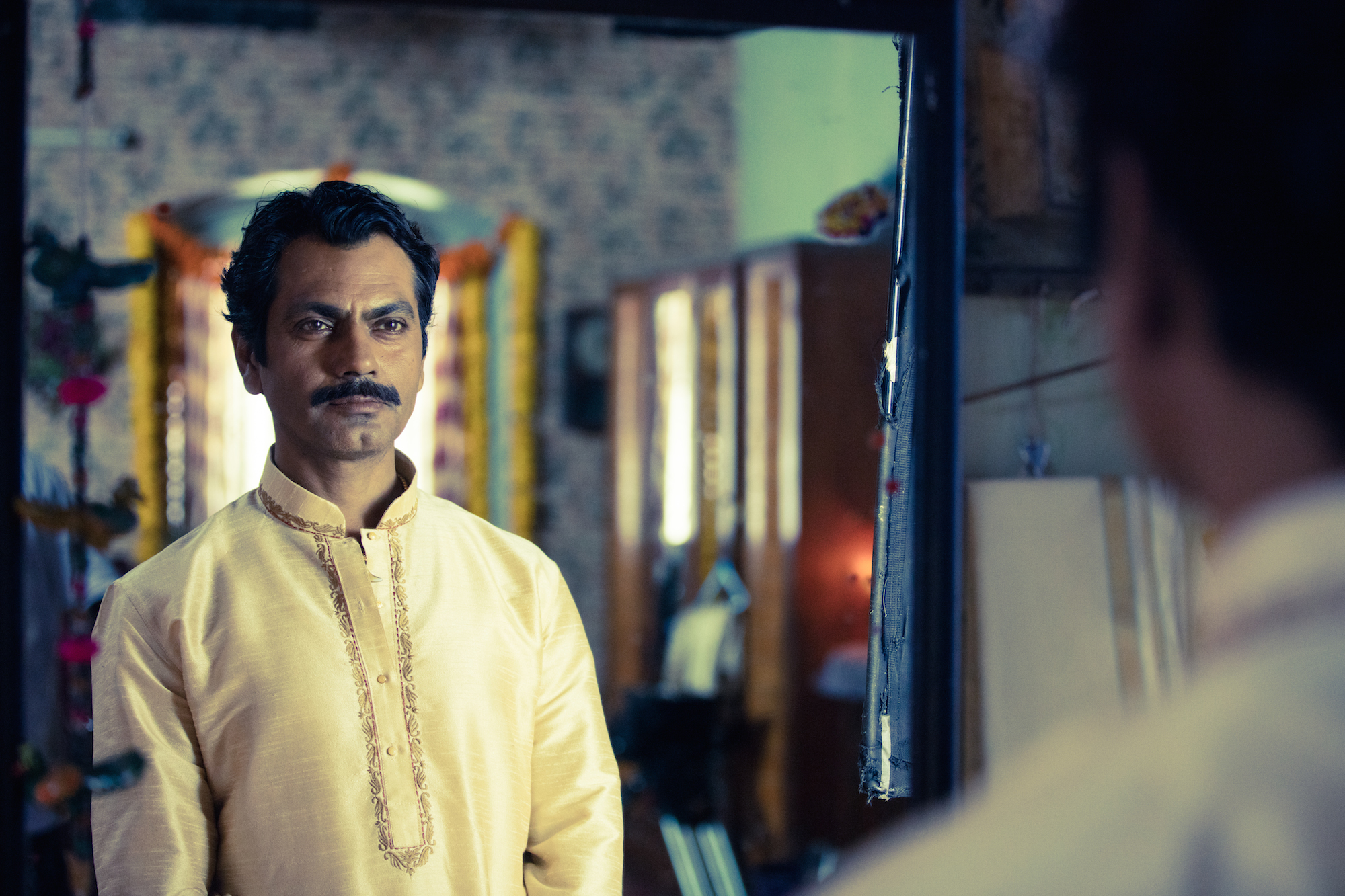When asked what country makes the most movies, you’d probably think about the United States. After all, America is home to Hollywood, and churns out famous films year after year. However, the truth is that Hollywood is neither the largest nor the most popular place to produce movies. In fact, it’s not even second.
India and Nigeria lead the world in films produced per year. Of those two, India’s “Bollywood” in Mumbai (previously known as Bombay, hence the B in Bollywood) is the most popular by far. They are so popular, in fact, that Bollywood films reach every corner of the planet. Even the West is no stranger to Bollywood, where movies enjoy cult status among groups of fans.
Despite their widespread popularity for a few audiences, these films become cult classics that otherwise don’t garner much attention from mainstream audiences. Netflix’s decision to launch “Sacred Games,” a new series filmed in India, is much riskier because of this.
“Sacred Games” is not only filmed in India, but it is written and directed by Indian film crews. Everything about this series oozes Bollywood, from the music to the visual aesthetics, and while it may garner attention from an Indian market that Netflix has struggled to capture, it threatens to alienate a Western market that sees India’s films as bizarre.
Bollywood has gained a bit of a reputation in the Western world, and not all of it is unwarranted. For one, India struggles to maintain CGI that approaches anything close to what Hollywood can offer, and consequently CGI – heavy films tend to look cheap to Western audiences, downgrading otherwise great movies into B-movies in America. In addition, Bollywood acting is regarded as stereotypical and forced, and American filmmakers often warn young actors to cut the “Bollywood” out and keep things realistic.
If either of those weren’t bad enough, the plots in Indian films also often lack subtlety, are slower paced and more vivid in color than what you’ll see in a Western film. Combine these differences and it’s easy to see why American audiences might feel a cultural shock when exposed to India’s filmmaking. For “Sacred Games” to thrive in both markets, Netflix had to find a way to bridge that cultural gap of expectations. This move can only be seen as risky, than risky but after watching the entire first season, I can say Netflix’s gamble paid off. “Sacred Games” is a police drama unlike any you have seen before, and is all the better for it.
Based on the popular novel of the same name, “Sacred Games” follows the story of Sartaj Singh,a low–level cop in Mumbai. Sartaj struggles with his desire to be an honest cop among a corrupt police force. As he gets pressured to lie and cheat by the officers superior to him, he receives a phone call from a mysterious stranger. Mumbai will be destroyed in 25 days, the stranger says, and Sartaj must save it before then.
While the threat to Mumbai forms the backbone of “Sacred Games” story, it’s not the only plot the show follows. While Sartaj is struggling to find answers, the show introduces a wide cast of characters including Anjari, the RAW agent (similar to CIA or Interpol) who wants to prove she is more than just a desk analyst, and Katekar, Sartaj’s partner who struggles with balancing family life and work. Shadowing all three is the story of the main antagonist’s origin, delivered in periodic flashbacks.

Mixing several plot lines together often results in a mess of stories, but “Sacred Games” manages to make it work. No plot exists to distract the viewer. Instead, side plots are a way of advancing the story without having to force events to happen. If “Law and Order” is a show about finding clues and solving a mystery, then “Sacred Games” is like watching someone navigate a maze. They get lost, pause, turn around and go back until they find their way.
That way forward takes the shape of the secondary plotlines. When Sartaj or Anjari don’t know what to do next, the show cuts away to a different storyline. For instance, at one point a boy goes missing and Katekar, Sartaj’s partner, heads off to investigate. As that plotline wraps up, Sartaj looks through a dead man’s wallet and finds a photo. The person in the photo reminds Sartaj of something he had seen before and gives him a new avenue to investigate.
In this way each smaller plotline is important to the main mystery, and since they happen simultaneously, none of them feel forced. When Sartaj discovers the photo, it feels natural that it would jog his memory. Instead of the next clue showing up just to advance the plot, “Sacred Games” justifies each clue’s existence by building up a story that logically brings it to the characters attention. It’s one of the most fluid ways to move a plot I’ve ever encountered.
Acting as the backdrop for the show is a haunting, tense soundtrack that kept me on edge the entire series. Where some productions rely on action and violence to get your blood pumping, “Sacred Games” does it with its music. Composer Alokananda Dasgupta has done a brilliant job in mixing Indian style music with tense undertones. Scenes were characters walk forward, unsure of what is in front of them, are nerve-wracking. Moments where nothing is going on are often the scariest, and I could feel myself tensing up in anticipation of what might happen next.
In the end, a great deal of love and attention has been put into “Sacred Games”. Rated TV-MA, the show features themes of extreme violence, nudity, corruption, prostitution and religious strife between Hindus and Muslims that mirrors India’s past and present. The world of “Sacred Games” is vivid in a way Americans don’t get to see very often, with bright colors and generous lighting even in night scenes. This makes Mumbai feel alive and less like a set and more of a real-life location.
While at times the computer effects can suffer, more often than not they are nothing short of brilliant. The opening scene of the series, for example, depicted a gunshot so realistic it made me flinch despite having been to gun ranges dozens of times.
“Sacred Games” is not perfect. At times the slower pace does get a little bit grating, and I fought the urge to fast forward to the next part of the story more than once. This is the biggest complaint I can make against the show; it takes its own time for events to happen. Sometimes episodes felt like they were only 15 minutes long, while at other times it felt like they would never end.
If you don’t have the patience to dedicate to the show, and cannot find yourself wrapped up in the story, the pacing may be a deal breaker for you. However, if you’re patient and willing to give it a chance, you’ll be pleasantly surprised.
Through amazing sets, colorful lighting and generous screen time to develop its characters, “Sacred Games” transcends both markets and becomes one of the best police crime dramas I’ve ever seen. If you like mystery, drama, and shows made with passion you should not be passing “Sacred Games” up.

















